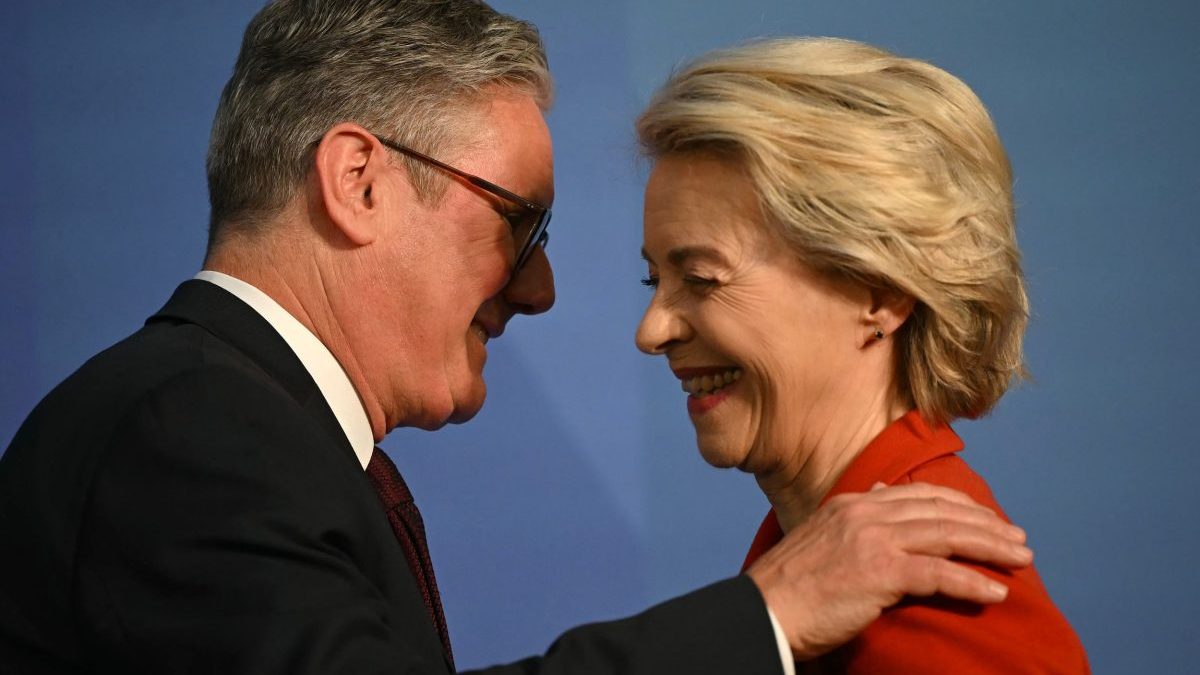Senior sources say limiting the numbers who can come under a youth mobility deal will be considered
A deal for under-30s to travel, work, and study more easily between the UK and EU was a step closer on Friday after two European diplomats said Brussels was open to limiting the number of people who could access it.
One senior EU diplomat told The i Paper that the bloc views a youth mobility deal as a vital part of the post-Brexit reset and made clear that member states would be open to considering a cap on numbers, which would be a major concession.
A European diplomatic source meanwhile confirmed that limiting the number of under-30s who could travel to the UK from Europe to work or study, and vice versa, was “one option that will be considered”.
It came after Germany’s ambassador said the EU was open to negotiating on any UK demand for a scheme time-limited to a year for each person, but Brussels’ starting position was to ask for three-year visas.
A youth mobility deal has been a key ask of European nations for Sir Keir Starmer’s much-vaunted softer Brexit reset.
However, the EU has been forced to consider concessions after the Prime Minister rebuffed initial proposals for an unlimited scheme that would allow European citizens aged 18 to 30 to travel to the UK for four years and vice versa.
Home Secretary Yvette Cooper is reluctant to agree on a youth mobility deal, with a Home Office source saying: “Reducing net migration is our primary objective”.
But she is coming under pressure from fellow Cabinet ministers, who are believed to include Chancellor Rachel Reeves, who is persuaded that a youth mobility scheme will boost economic growth.
On Friday, while attending International Monetary Fund (IMF) meetings in Washington DC, Reeves suggested that boosting EU trade was a higher priority than the United States.
Meanwhile, EU Relations minister Nick Thomas-Symonds has consistently indicated a willingness to negotiate on youth mobility, acknowledging that it was one of Brussels’ main demands while insisting the UK had “no plans” for a scheme.
Cooper is understood to have made securing a cap on numbers her absolute red line in ongoing Cabinet discussions. She also wants to tie a youth mobility scheme to greater cooperation from the EU on fighting Channel small boat crossings, including access to biometric data on asylum seekers, irregular migrants, and criminal suspects.
According to data from the UK Higher Education Statistics Agency (HESA), in the 2018/19 academic year, there were approximately 143,000 students from the EU studying in UK higher education institutions, and most of these are likely to have been under 30.
The UK is likely to try and ensure any cap is not greater than this number. The current youth mobility scheme for Australian nationals is capped at 42,000.
Different existing schemes have different caps. For example, Canada has 10,000 places, New Zealand 9,500, Japan 6,000, and India 3,000.
Downing Street on Friday gave the strongest hint yet that a youth mobility deal was on the cards, with a No 10 spokesman saying he would not “get into the detail of the discussion that is taking place”.
He said: “Both sides are discussing a wide range of issues, which is entirely normal for any negotiation.
“I don’t think we could have been clearer that this is not about returning to the EU, but we will not be defined by the debates and arguments of the past.”
Earlier this week, more than 60 Labour backbenchers urged the Government to negotiate a youth mobility scheme as part of the desired reset with the bloc.
Starmer’s also looking to sign a defence pact with the EU and boost trade ties with a deal to ease cross-border food trade, while Brussels is looking to secure future fishing rights in UK waters, among other issues under discussion in the reset negotiations.
